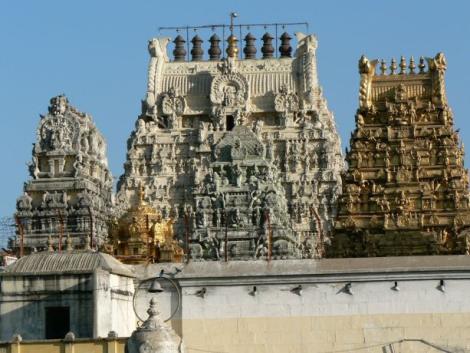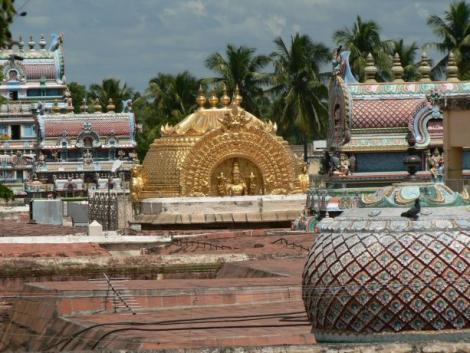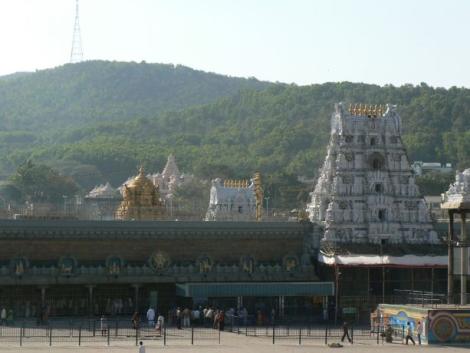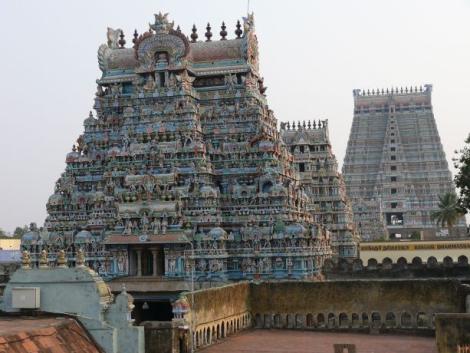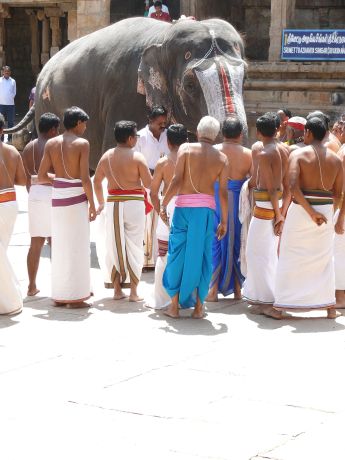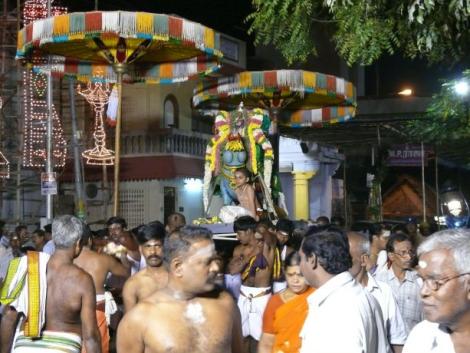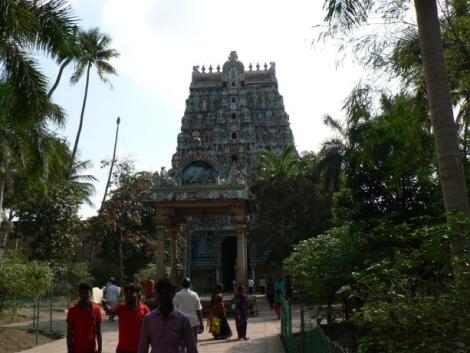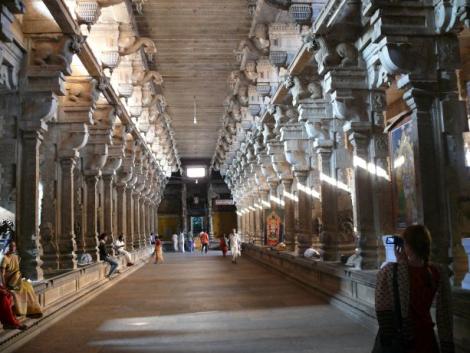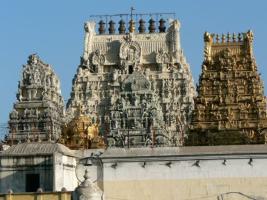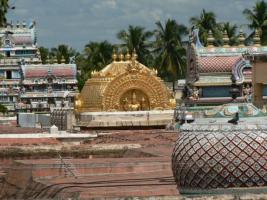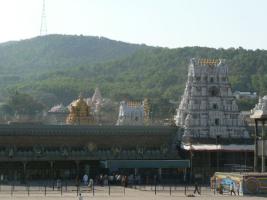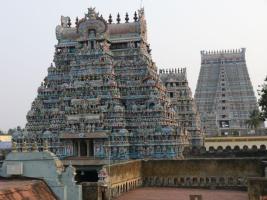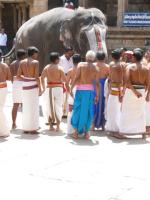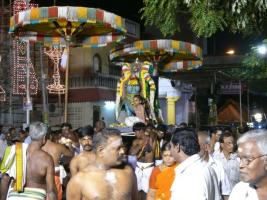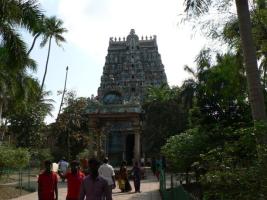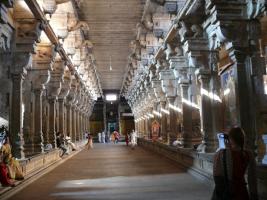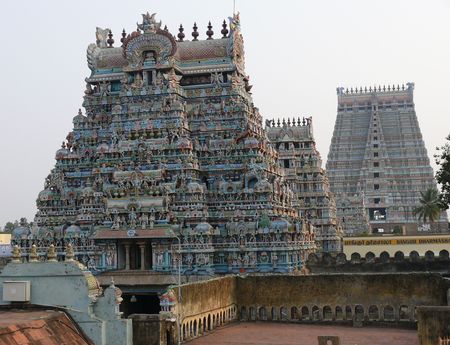
The National Science Centre has published the results of the fourth and last edition of the Beethoven CLASSIC 4 call. The list features Prof. Marzenna Czerniak-Drożdżewicz from the JU Faculty of Philology, who will be carrying out a research project entitled South Indian Temples: Nodal Points in Webs of Connections together with a team led by Prof. Ute Hüsken from the University of Heidelberg. To this end, the researchers received nearly 700,000 zlotys (~150,000 euro).
The Beethoven CLASSIC 4 call is launched by the National Science Centre (NCN) in cooperation with Deutsche Forschungsgemeinschaft (DFG) from Germany pursuant to the joint evaluation procedure which means that the partner agencies perform a joint merit-based evaluation and selection process of projects recommended for funding.
In Beethoven CLASSIC 4, funds may be awarded for remuneration of the research team, scholarships for students and PhD students, purchase or manufacturing of research equipment and for other costs necessary to complete the Polish part of the research project.
The project description reads: ‘Since the beginning of the second millennium CE, Hindu temples and shrines have been of great importance to South Indian religious, social and political life. They were places of worship, but also centres of learning, political hotspots, and foci of economic activities. Within these holy sites human and divine interacted, they were meeting places of different members of the communities, they attracted pilgrims and travellers, whose journeys connect multiple sacred spots, and along with whom ideas, beliefs, texts, skills, material objects and practices circulated.
‘The proposed, collaborative project conceptualises the temples as nodal points within webs of various connections, thus perceives temples as participating in differentiated nets of relationships and not just as stand-alone monuments. Drawing on the literary cartography theory (e.g. Tally 2014), the project’s hypothesis is that both the spaces in which the temples are situated, and the connections between temples, are mapped by narratives, which can be told and written (as in literary texts), sung and heard in oral transmission, seen (as in architecture and iconography), embodied and performed (in ritual and theatrical performances), and walked, when pilgrims follow the routes that sages or gods are believed to have used before them. Often, these are the pilgrims’ movements which ensure and make ‘alive’ connections between the temples.
‘Main questions to be answered are: Do the networks laid out in the texts inform pilgrimage practice? Are observable pilgrimage circuits, which connect temples, authorised by textual sources? What is the relationship between temples at the centre, and temples at the periphery within such networks? What are the strategies of establishing links, how are these links articulated in various media (texts, iconography, rituals), how do these aspects differ from region to region in South India and how are these strategies differently articulated in various languages (Sanskrit, Tamil, Malayalam, Telugu)? Why and when do networks of temples appear, or disappear? Who are the agents behind such processes?
‘By focusing on the dynamics between temples, the project concentrates on connections and flows of ideas and material objects between Hindu holy sites. Such an approach will facilitate a new understanding of the “work” of mythological narratives beyond their religious messages, of the interconnection of texts, art, and ritual in this context, and of the interconnectedness of religion, economics, and politics “on the ground” – an aspect that for the lack of sources often escapes scholarly attention’.
Prof. Marzenna Czerniak-Drożdżowicz works at the Department of Languages and Cultures of India and South Asia of the JU Institute of Oriental Studies, from which she graduated and where she later defended her PhD thesis in 1994. She became a full professor nine years later. She specialises in Hindu religious traditions. Her interests include literature, its transformations and roles in contemporary South Asian Hinduism as well as religious art of the region, ancient in Indian society, legal texts and early religious writings. She is a member of the Committee of Oriental Studies of the Polish Academy of Sciences for the 2020–2023 term as well as JU Literary Studies Research Discipline Council. She has received many grants, including the Michael Coulson Research Discipline Fellowship in Indology at Wolfston College, Oxford, Andrew Mellon Fellowship at the American Institute of Indian Studies as well as several ones awarded by the Polish government and the National Science Centre.


